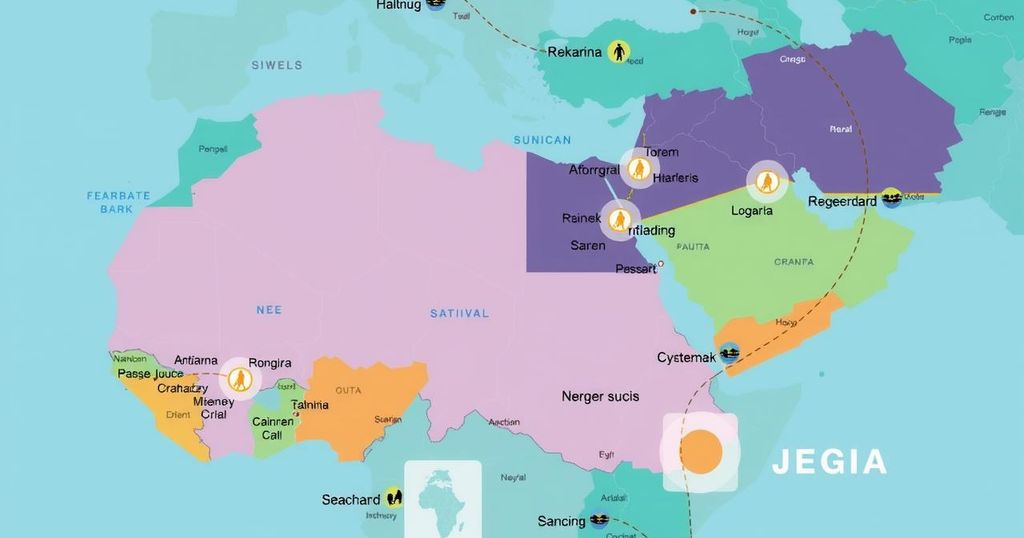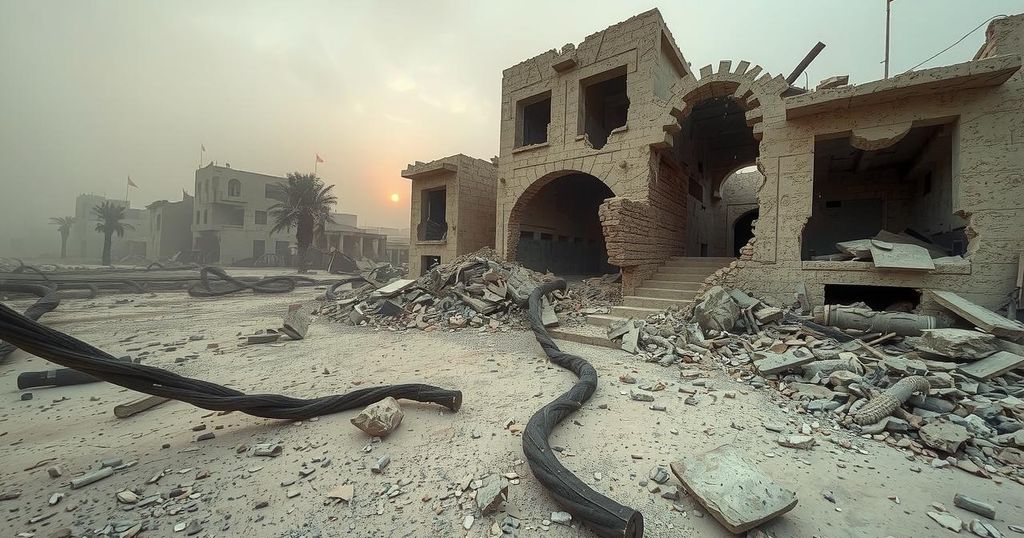In February 2025, humanitarian access in South Sudan was severely hindered by 25 reported challenges, including violence against aid workers and bureaucratic obstacles. Notable unrest occurred in Nasir County, leading to humanitarian staff relocations. Violence targeting aid operations was also evident in Jonglei and other regions, while bureaucratic issues further delayed essential assistance to those in need.
In February 2025, humanitarian organizations in South Sudan reported facing 25 access challenges due to various factors. Active hostilities among armed groups, bureaucratic obstacles, and violence targeting humanitarian personnel, facilities, and assets continue to obstruct the provision of life-saving services. As the rainy season nears, the need for prepositioning essential supplies becomes increasingly critical to ensure the continuity of services when roads become impassable.
Nasir County in Upper Nile State experienced significant unrest due to clashes between local militia and the South Sudan People’s Defense Forces (SSPDF). These conflicts resulted in the displacement of individuals, loss of life, property destruction, and significant disruptions to humanitarian services. Consequently, in February, 23 humanitarian staff were relocated from Nasir, Mandeng, Jikmir, and Ulang regions to ensure their safety.
Humanitarian personnel and facilities have also been directly threatened in Jonglei, Central Equatoria, and Western Equatoria. Aid workers encountered ambushes, attacks, and incidents of looting. For example, armed youth from the Greater Pibor Administrative Area (GPAA) killed two security guards at an OXFAM warehouse in Motot and made off with food supplies. In a separate incident on February 26, armed individuals targeted a humanitarian convoy and a UN contractor, underscoring the heightened dangers associated with road travel. Furthermore, on February 12, individuals suspected of being SSPDF detained a UNSMS-contracted boat at a river checkpoint, delaying vital humanitarian deliveries from Malakal to Baliet.
Bureaucratic hurdles have also been significant, particularly in Renk County, where an international non-governmental organization (INGO) faced a demand for a US$1,500 registration fee from local labor officials. Such irregular levies impose additional financial and administrative strains on aid agencies. Additionally, security forces in Aweil East County restricted vehicle access on February 14, thwarting an INGO team’s planned journey to Wedwel. These ongoing bureaucratic challenges, along with rising security concerns, greatly impede humanitarian efforts and delay critical aid delivery to those in dire need.
In summary, the humanitarian access challenges in South Sudan during February 2025 stem from escalating violence, bureaucratic obstructions, and security risks. Clashes in Nasir County and incidents across Jonglei, Central Equatoria, and Western Equatoria have placed humanitarian personnel in jeopardy. The impact of irregular fees and restricted movements further complicates service delivery, necessitating urgent attention to safeguard humanitarian operations and ensure timely aid reaches affected populations.
Original Source: www.unocha.org




